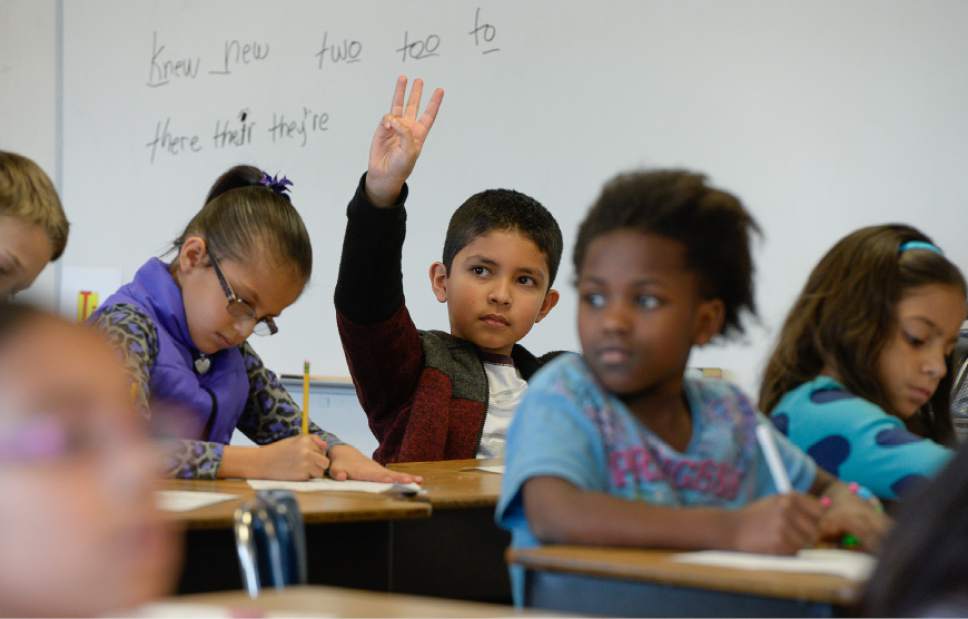This is an archived article that was published on sltrib.com in 2016, and information in the article may be outdated. It is provided only for personal research purposes and may not be reprinted.
Teachers who give grades are expected to set clear, attainable goals for their students. Everyone needs to know going in what is expected of students if they want to pass, to excel, to move on.
Teachers who get grades should expect no less.
But, as was explained — again — to the Utah Board of Education the other day, the state's method of assigning grades to its public schools has been difficult to understand and sets standards that seem deliberately hard to meet.
If we didn't all know better, it would be easy to suspect that undermining teachers' confidence in their own abilities, and the public's confidence in those teachers, was the whole goal of the Legislature's school grading scheme.
The problem is apparently worst in the schools where the most attention is needed.
Turnaround schools, as they are called, are those that have the most disappointing records, based on such things as test scores and, for the higher grades, graduation rates and ACT scores. Over the last couple of years, those schools have been the focus of extra scrutiny and, in theory at least, additional help from the state.
But teachers and administrators in those schools are now pointing out that the promise of help and money has not done the schools, or their students, much good. Too much was focused on spending state money — money that would better have gone to shore up a school's offerings — on outside consultants.
And even if those consultants were able to make suggestions that improved a school's performance measures, a couple of years of good ratings for the state's schools overall triggered a provision in state law that moved the goalposts for turnaround schools. That meant that even schools that did what they were asked to do saw their single-letter grades stay the same, or even fall.
The cash promised to teachers and schools has been paltry, when it has shown up at all. And the whole approach has the effect of demoralizing teachers and driving them out of the hardest schools — or out of the profession altogether — at a time when it is hard enough to get smart people to enter and remain in the profession.
It should proceed from the fact that neighborhoods with more low-income and/or non-English speaking families pose the biggest challenge and require the most state assistance.
Up front. And without having to keep running after those moving goalposts.



